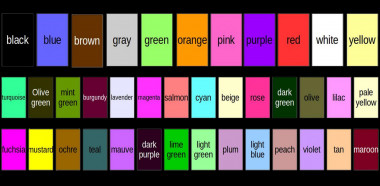Thursday, August 30, 2018
Wednesday, August 29, 2018
Tuesday, August 28, 2018
Monday, August 27, 2018
Let's speak about the weather
What's the weather like?
It's sunny/rainy/foggy/cloudy/windy... Do you need more words to describe the weather? Watch the video.
It's sunny/rainy/foggy/cloudy/windy... Do you need more words to describe the weather? Watch the video.
Job Interview Questions and Answers
Tips for a successful job interview
- Speak clearly and vary your tone to show you are interested and enthusiastic.
- Take time to think about each question before answering so that you can give a good response.
- Listen to questions carefully and let the interviewer lead the conversation. If you don’t understand a question, ask for it to be explained or repeated.
- Be diplomatic and discreet, and don’t criticise previous employers or co-workers.
- Give examples from your experience that demonstrate your knowledge and skills.
- Show confidence in your skills and be positive about what you have done. For example, instead of using phrases such as “I only have…” or “I don’t have…” tell the employer what you do have to offer.
Questions and suggested answers
Some other tricky questions:
1. What is your greatest strength/ greatest weakness?
- Your greatest strength is something they need. Don’t choose something irrelevant to the job or the employer.
2. Tell me how you’ve handled a difficult situation.
- The key to this tricky interview question is to make sure that you talk about a situation that wasn’t your fault. If you’re handling a difficult situation, but it’s obvious that you created your own troubles, it doesn’t look good.
- The interviewer wants to see how you handle difficulty and if you are able to think outside the box and keep the company’s big picture in mind.
3. How did you find this job?…
- Make sure you go into a little detail on what you found in your research.
4. Do you have any questions?
- This is your chance to “interview the interviewer.” Those who don’t ask questions give the impression they’re “just kicking the tires” or not really too concerned about getting the job.
- When given the floor to ask questions, you should realize the interview is not over yet. Good candidates know this is another time to shine.
From ESLBUZZ
Formal / Informal Letters
Formal letters
- Formal letters are sent to organizations, government departments, chair holders, etc to make complaints, requests, inquiries, orders etc.
- In case of formal letters, the person to whom you are addressing the letter is not a friend or any other person known to you.
- Your tone is full of respect making use of formal words and sentences to create a nice impression on the recipient.
- Formal letter follow a set format where you write the name, designation, and address of the recipient on the top left while your own name and address at the top right.
- You sign off at the bottom left under yours truly or yours faithfully.
Informal letters
- Informal letters are written to friends and relatives.
- The purpose of writing a letter is not to make a complaint or inquiry, and the tone is also casual.
- The words used can be colloquial and slang, and you are not there to create an impression.
- Informal letters can be considered a freestyle swimming where you are free to write in the style and tone as you wish.
- There is no set format, and there is no need to be using formal style and tone.
From www.eslbuzz.com
Monday, August 6, 2018
Reading: What's in a colour?
Read about the meaning of colours and why the right choice is important for your business.
Subscribe to:
Comments (Atom)





















































